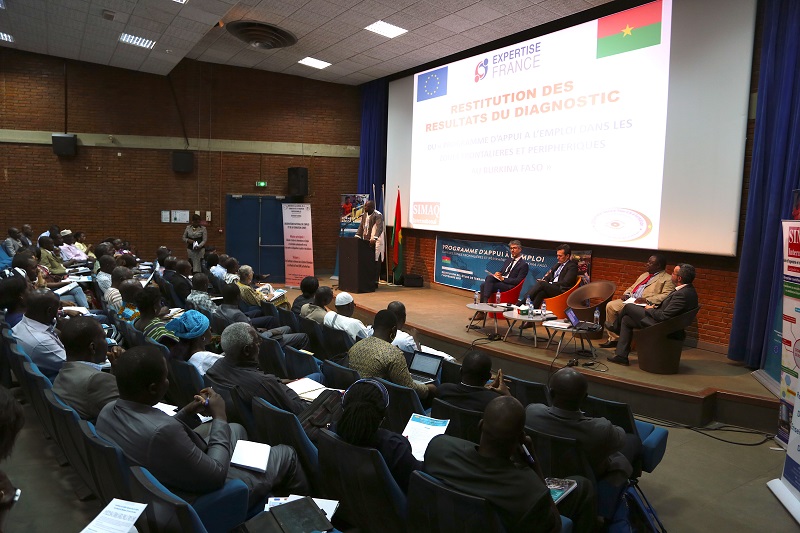Start-up of the Programme of Support for Employment in Border and Peripheral areas
Professionalising and promoting entrepreneurship in 3 regions
This programme is financed by the European Union. Firstly, it aims to foster the employability of young people and women, via vocational training tailored to local demand, and, secondly, to promote the creation of productive employment, by stimulating the development of micro and small enterprises.
Three northern regions are targeted: La Boucle du Mouhoun, the North and the Sahel Region. In these regions, which are particularly hit hard by insecurity and the lack of economic opportunities, the programme aims to secure and create sustainable employment for young people and women, in relation to their needs, their potential and the economic potential of the regions where they live.
The solution proposed: develop and professionalise their skills and help them set up a sustainable business. In practical terms, 10,000 young people and women will have access to vocational training and assistance in setting up a business.
Taking action at grassroots level in territories in conjunction with local authorities
 To meet the specific economic and social needs of each of these territories, the project team opted for a local approach working together with local authorities, first and foremost Regional Councils, which are responsible for economic development and employment.
To meet the specific economic and social needs of each of these territories, the project team opted for a local approach working together with local authorities, first and foremost Regional Councils, which are responsible for economic development and employment.
The implementation of the programme is firstly based on a precise analysis of local situations in the 3 regions concerned, then on operations by civil society organisations, which are already in contact with populations.
A consultancy firm, SIMAQ, has been mandated by Expertise France to conduct an in-depth field study, with support from the Burkina Faso’s National Observatory of Employment and Training (ONEF). The study has concluded, for example, that:
• Vocational training lacks human and material resources and remains concentrated in the regional capitals, while training costs, distances, “socio-cultural pressure” (particularly for women), but also the lack of information about high-potential activities, are factors which limit recourse to vocational training;
• There are several available ways to access financing for business start-ups (often via cooperatives), but certain obstacles limit access to this financing for local populations and particularly young people (demand for guarantees, illiteracy, etc.);
• Burkina Faso’s civil society is very dynamic and has a high degree of freedom for action. Potential avenues for capacity building have been identified.
The challenge now lies in identifying concrete solutions to improve access to training and entrepreneurship for young people and women in these regions. In this respect, calls for proposals will be launched in late 2017, in order to finance projects led by civil society.
The programme will be able to make a difference through the choice of the actions financed. For this purpose, the field study is currently being used to propose targeted and effective activities, with several guidelines:
• Focus on sustainability by financing training leading to a qualification and systematically involving local authorities in the supervision of funded projects;
• Target employment potential and needs through support in priority and high-potential sectors (agriculture, livestock raising, craft trades, trade and construction);
• Finance innovative solutions tailored to local realities, by directly calling on civil society initiatives and mobilising the expertise of the project team;
• Circumvent the limits related to financial resources by fostering access to training (grants, bearing the cost of accommodation or meals, assistance in the search for financing).
A capacity building programme for civil society organisations (CSOs) will implemented by the project team at the same time.

